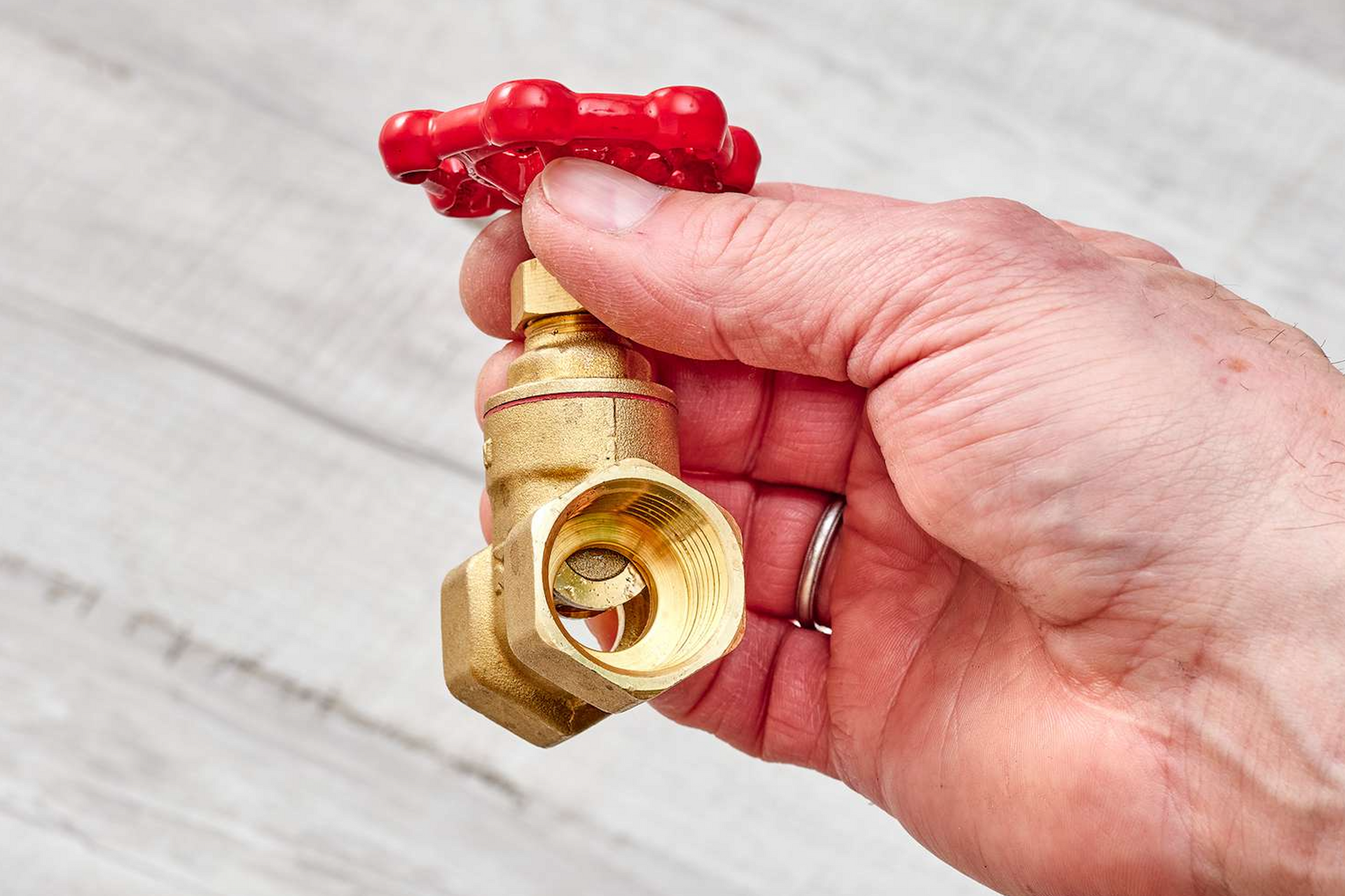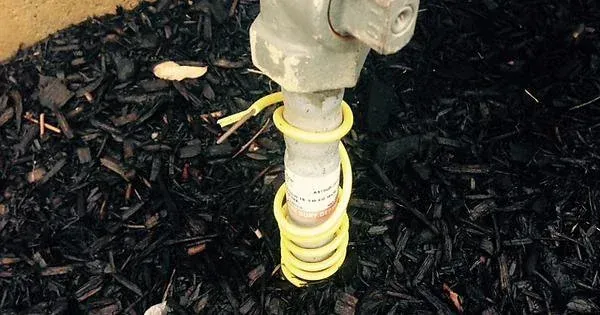Handling Gas & Water Leaks
July 4, 2023
IF IN IMMEDIATE DANGER,
DIAL 911
Discovering a water or gas leak in your home can be a distressing experience, but it's essential to act swiftly to minimize damage and ensure the safety of your household. Knowing how to handle these situations can make a significant difference in preventing further complications and potentially hazardous situations. In this article, we will provide you with a step-by-step guide on what to do if you encounter a water or gas leak in your home.
Stay Calm and Prioritize Safety
The first and most crucial step when dealing with any kind of leak is to remain calm and composed. Panic can cloud your judgment and hinder your ability to take necessary precautions. Immediately prioritize the safety of yourself and your family members by evacuating the premises if there is an overpowering gas odor or if there is any immediate danger, such as standing water or exposed electrical wires.
Locate the Source of the Leak
Identifying the source of the leak is crucial for taking appropriate actions. If it's a water leak, turn off the main water supply valve to prevent further damage. This valve is typically located near the water meter or where the main water line enters your home. If you're dealing with a gas leak, find the main gas shut-off valve, usually positioned near the gas meter, and turn it off. Remember, if you suspect a gas leak, it's best to leave the premises and contact your gas company immediately.
(PRO TIP:
Locate and test your shut-off valves before you need them in the case of an emergency)
Open Windows and Ventilate
If you have turned off the gas supply and it is safe to do so, open windows and doors to improve ventilation. This will help dissipate any remaining gas fumes and reduce the risk of explosion. However, if you suspect a gas leak, it's essential to leave the property and call emergency services before attempting to ventilate.
Contact the Appropriate Authorities
For both water and gas leaks, it is crucial to notify the relevant authorities as soon as possible. Contact your local water utility company if you're dealing with a water leak or your gas company if it's a gas leak. They will guide you on the necessary steps to address the issue safely. In the case of a severe gas leak or if you cannot reach your gas company, call emergency services right away.
Assess and Contain the Leak
While waiting for professional assistance, try to contain the leak to prevent further damage. For water leaks, place buckets or towels to catch dripping water and use a mop or wet/dry vacuum to remove standing water. If the leak is from a specific appliance or fixture, such as a faucet or toilet, consider shutting off the water supply to that specific area.
Seek Professional Help
Once you have taken immediate measures, it's crucial to engage professional help. Contact a licensed plumber for water leaks or a qualified gas technician for gas leaks. They possess the expertise to identify and repair the problem safely and effectively.
Document the Damage
In situations where water or gas leaks have caused significant damage, document the affected areas, including taking photographs or videos. This documentation can be valuable for insurance purposes and may help expedite the claims process.
Preventive Measures for the Future
After resolving the immediate issue, take steps to prevent future leaks. Regularly inspect and maintain your plumbing and gas systems. Consider installing leak detection devices that can alert you to potential leaks and minimize damage. Educate yourself and your family members about basic maintenance practices and how to recognize signs of leaks.
Conclusion
Encountering a water or gas leak in your home can be an alarming experience, but by following these steps, you can mitigate the potential damage and ensure the safety of your household. Remember to prioritize safety, shut off the water or gas supply, ventilate the area to minimize risks, contact the appropriate authorities, contain the leak, and seek professional help. Taking preventive measures and staying vigilant can help prevent future leaks and maintain the integrity of your home's plumbing and gas systems. By being prepared and acting swiftly, you can effectively handle water or gas leaks and protect your home and loved ones.
You might also like

As the trusted experts at Aaron's Water Heaters, we understand the importance of a reliable residential water heater, especially during those chilly Michigan winters. Today, we want to dive into a crucial aspect of your water heating system that often goes unnoticed – the valves. Specifically, we'll be comparing ball valves and gate valves, shedding light on their differences and helping you make an informed decision for your replacement water heater installation. The Basics: Before we delve into the specifics of ball and gate valves, let's briefly go over their primary functions. Valves play a pivotal role in controlling the flow of water within your plumbing system. They act as gatekeepers, allowing you to shut off or regulate the water supply to different parts of your home. Ball Valves: Ball valves are recognized for their simplicity and efficiency. They feature a spherical disc inside the valve body, which can be rotated to control the flow of water. When the handle is perpendicular to the pipe, the valve is closed, and when it's parallel, the valve is open. This straightforward design allows for quick and precise control over the water flow, making ball valves a popular choice for many residential applications. Advantages of Ball Valves: * Quick and Easy Operation: Ball valves are known for their user-friendly operation, allowing homeowners to shut off the water supply rapidly in case of emergencies or maintenance. * Durability: The design of ball valves makes them less prone to leaks, ensuring a longer lifespan and reduced maintenance requirements.
* Reliability: Ball valves provide a tight seal, minimizing the risk of water wastage and maintaining a consistent water flow. Gate Valves: Gate valves, on the other hand, employ a flat or wedge-shaped gate that moves up and down within the valve body. When the gate is raised, water can flow through; when lowered, the valve is closed. While gate valves are also widely used, they differ from ball valves in terms of operation and application. Advantages of Gate Valves: * Full Flow Control: Gate valves offer full, unrestricted flow when fully open, making them suitable for applications where maximum water flow is essential.
* Less Susceptible to Clogs: The straightforward design of gate valves makes them less prone to clogging, ensuring consistent performance over time. Choosing the Right Valve for Your Water Heater (and other plumbing in your home): When it comes to selecting the right valve for your residential water heater in here in Michigan, several factors come into play. Consider the specific requirements of your system, your preferences for ease of use, and the overall functionality you desire. For most homeowners in our region, the simplicity and reliability of ball valves make them an excellent choice. However, if your water heater demands high water flow and you prioritize maximum control, a gate valve might be the better fit. Conclusion: At Aaron's Water Heaters, we prioritize not only delivering top-notch replacement water heater installations but also ensuring you understand the components of your plumbing system. Knowing the difference between ball and gate valves empowers you to make informed decisions for your home. Contact Aaron's Water Heaters today for expert advice and seamless water heater installations tailored to the unique needs of fellow Michigan homeowners. Stay warm and worry-free with Aaron's!

Water heaters play a crucial role in our daily lives, providing us with hot water for showers, cleaning, and various household tasks. While they are essential, it's important for homeowners to be aware of potential safety hazards associated with water heaters. In this article, we will discuss key aspects of water heater safety and offer tips to ensure your system operates smoothly without posing risks to your home and family. Temperature Settings: One of the first considerations for water heater safety is setting the temperature at an appropriate level. The U.S. Department of Energy recommends a temperature setting of 120°F to prevent scalding while still meeting the needs of most household activities. Higher temperatures can increase the risk of burns, especially for children and the elderly. Regular Maintenance: Regular maintenance is essential for the safe and efficient operation of your water heater. Over time, sediment can accumulate at the bottom of the tank, reducing its efficiency and potentially causing overheating. Schedule annual flushing of the tank to remove sediment buildup and ensure optimal performance. Pressure Relief Valve: Every water heater is equipped with a pressure relief valve as a safety measure. This valve releases excess pressure from the tank, preventing potential explosions. Homeowners should test this valve periodically to ensure it is functioning correctly. If you find any issues, contact a professional plumber to address the problem promptly. Proper Ventilation: Gas-powered water heaters require proper ventilation to ensure the safe expulsion of combustion gases. Make sure the area around your water heater is well-ventilated and free from obstructions. Additionally, have a professional inspect the ventilation system annually to confirm its effectiveness. Check for Leaks: Water leaks around your water heater can lead to serious damage and pose safety risks. Regularly inspect the area around the heater for any signs of leakage, including rust or water puddles. Address any leaks promptly by tightening connections or replacing faulty components. Age of the Water Heater: Like all appliances, water heaters have a lifespan. Most units last around 10-15 years. If your water heater is nearing the end of its expected lifespan, consider proactively replacing it to avoid potential breakdowns and safety hazards associated with aging systems. Carbon Monoxide Detection: For gas water heaters, it's crucial to have a functioning carbon monoxide detector installed in the vicinity. Carbon monoxide is a colorless, odorless gas that can be produced by gas-burning appliances. Regularly check your detector and replace the batteries to ensure it is operational at all times. Conclusion: Prioritizing water heater safety is a responsibility that every homeowner should take seriously. By following these essential tips and conducting regular inspections and maintenance, you can ensure your water heater operates efficiently and safely. If you ever have concerns or encounter issues beyond your expertise, don't hesitate to consult with a professional plumber to address the issue promptly. Your family's safety and the longevity of your water heater depend on proactive care and attention to these crucial details.

Ever wonder what that random bare wire is sticking out of the ground near your gas meter or along the foundation of your house? No, someone didn’t forget to connect it to a circuit. Its purpose is safety! Let us explain… The underground infrastructure of our cities and towns is complex, carrying everything from water and gas to electricity and communications. For those in industries such as plumbing, like us at Aaron's Water Heaters, understanding the nuances of this underground world is essential. One such nuance is the use of tracer wires, which play a critical role in locating and identifying these utilities. In Michigan, understanding the color code of these tracer wires is pivotal. Here's a dive into what each color signifies according to the Michigan building code. What are Tracer Wires? Before we delve into the color codes, it's crucial to understand what tracer wires are. They're conductive wires buried alongside underground utilities like water lines, gas lines, or other conduits. These wires make it possible to locate the utilities later using an electronic locator, preventing potential damage to the infrastructure and ensuring safety during any excavation or drilling. Michigan Building Code: Tracer Wire Colors and Their Meanings The Michigan building code adopts the APWA (American Public Works Association) Uniform Color Code for marking underground utilities. Each color represents a different type of utility. Let's break down the significance of each: Red: Electrical power lines, cables, conduit, and lighting cables. The presence of a red tracer wire usually indicates that there's an electrical utility underground. Caution is advised. Yellow: Gas, oil, steam, petroleum, or gaseous materials. Yellow is a warning color, indicating potential flammable and hazardous materials below. Orange: Communication, alarm or signal lines, and cables or conduit. This color is generally associated with telecommunication lines like phone, internet, or cable TV. Blue: Potable water. Blue tracer wires lead to clean drinking water sources, and it's essential not to contaminate these lines during any work. Purple: Reclaimed water, irrigation, and slurry lines. Purple indicates non-potable water, used mainly for irrigation or industrial purposes. Green: Sewers and drain lines. Green tracer wires typically show the pathways of waste and stormwater systems. White: Proposed excavation. This color isn't necessarily for a tracer wire but is used in marking to indicate a planned excavation site. Pink: Temporary survey markings. Again, pink might not be associated with a tracer wire directly, but it is important in the realm of excavation and utility mapping. Why is Respecting these Color Codes Important? Mistaking one utility for another can have catastrophic consequences. For example, puncturing a gas line while thinking it's a water line can lead to explosions. Additionally, not locating utilities before digging can result in costly repairs, disrupted services, and potential legal liabilities. Hence, respecting and understanding the color codes is paramount. Final Thoughts While Aaron's Water Heaters specializes in keeping your home's water heating systems optimal, we believe in a holistic understanding of all things related to home infrastructure. Knowledge of underground utilities and the importance of tracer wires is just one aspect of that. If you're undertaking any digging or excavation, always ensure you're aware of the tracer wire color codes in your region. Remember, safety always comes first. Stay informed and ensure any professionals you hire are knowledgeable about the local building codes and best practices. If you have any questions related to water heaters or associated plumbing, don't hesitate to get in touch with Aaron's Water Heaters. We're here to help!
